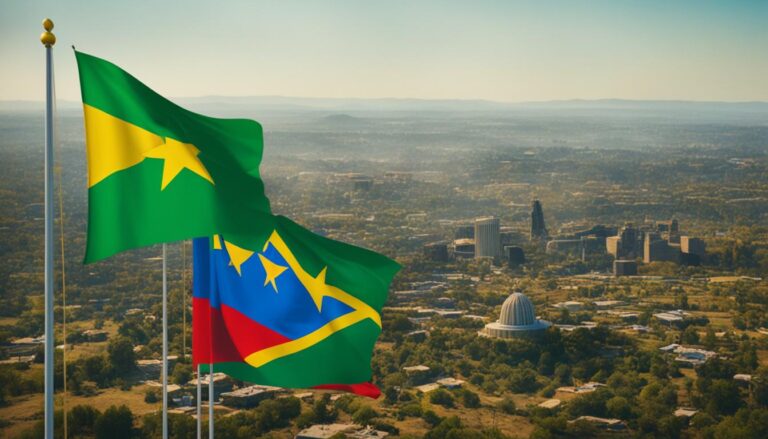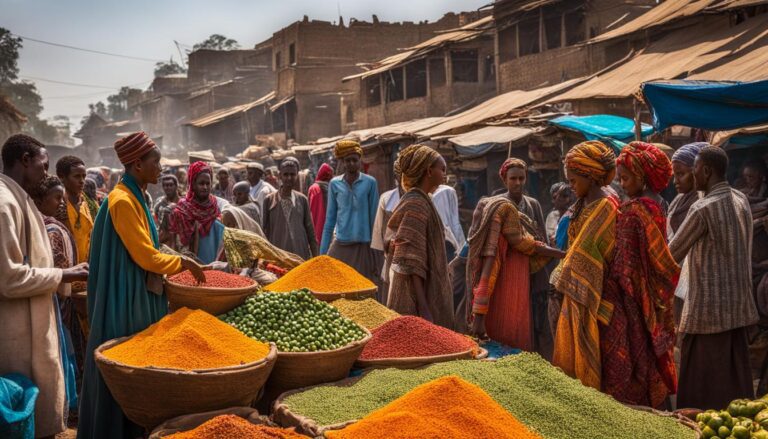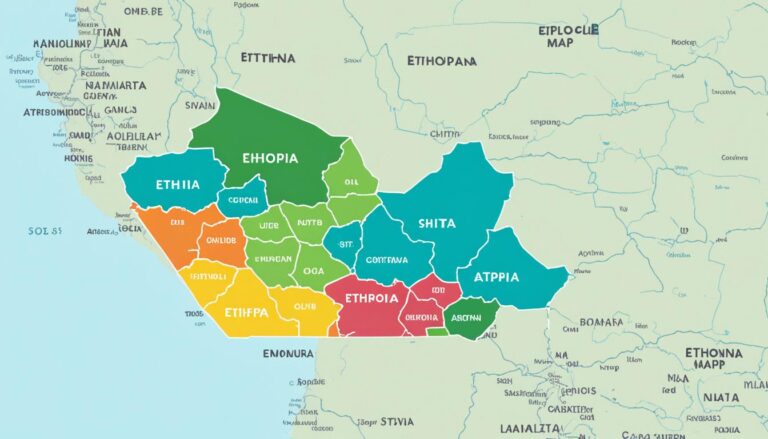What Is The National Sport Of Ethiopia?
Exploring the National Sport of Ethiopia
When it comes to the national sport of Ethiopia, one cannot overlook the significance of long-distance running in the country. Running, particularly marathon running, holds a special place in the hearts of Ethiopians and is deeply ingrained in the nation’s culture and history.
Ethiopia has a long and storied tradition of producing world-class long-distance runners who have excelled on the global stage. The success of Ethiopian athletes in events like the Olympic Games and various international marathons has brought immense pride and recognition to the country.
One of the key reasons behind the dominance of Ethiopian runners in long-distance events can be attributed to the high-altitude training conditions prevalent in the country. The mountainous terrain and the thin air at high altitudes provide Ethiopian athletes with a natural advantage, allowing them to develop exceptional endurance and stamina.
Moreover, the success of Ethiopian runners has inspired generations of young athletes in the country to pursue a career in long-distance running. Running is not just a sport in Ethiopia; it is a way of life and a source of national identity and unity.
Ethiopia’s national sport of long-distance running embodies the resilience, determination, and spirit of the Ethiopian people. It serves as a symbol of unity and pride, showcasing the rich sporting heritage of this East African nation on the global stage.
Historical significance and evolution of Ethiopian traditional sports
Sports have always held a special place in Ethiopian culture, offering a glimpse into the rich history and traditions of this East African nation. Traditional Ethiopian sports date back centuries, with origins deeply rooted in the country’s diverse ethnic groups and unique landscapes.
One of the most renowned traditional sports in Ethiopia is "Genna", a form of hockey played during the Christmas season. This ancient game symbolizes the shepherds’ efforts to keep Baby Jesus warm in the manger and is a significant part of the country’s cultural heritage. Ethiopian "Senbetay" is another traditional sport involving skillful stick-fighting techniques passed down through generations.
Ethiopia’s rugged terrain and agricultural lifestyle have influenced the development of various sports and pastimes. "Gerata", a form of competitive horse racing, showcases the importance of equestrian skills among the Ethiopian people. "Dandi Biyo", a game resembling European knucklebones, demonstrates the dexterity and agility of participants as they aim to win by tossing and catching pieces of wood or metal.
Over the years, these traditional sports have evolved, blending with modern influences to create a unique sporting culture in Ethiopia. While some games have faded into obscurity, others remain vibrant, connecting communities and preserving age-old customs. The endurance and athletic prowess displayed in these traditional sports have also had an impact on contemporary athletics, shaping the development of modern Ethiopian sports stars.
The historical significance and evolution of Ethiopian traditional sports underscore the country’s deep-rooted connection to physical activities and communal celebrations. By embracing these time-honored games, Ethiopians not only honor their heritage but also pave the way for future generations to appreciate the cultural richness encapsulated in each sporting tradition.
The Cultural Impact of Sports in Ethiopia
Sports play a significant role in shaping the cultural landscape of Ethiopia. The country has a rich history of traditional sports that are deeply ingrained in its cultural fabric. From long-distance running to football, sports have become a prominent part of Ethiopian life, uniting people from diverse backgrounds.
One of the most popular traditional sports in Ethiopia is Gena, a form of hockey played with curved sticks and a round wooden ball. This ancient sport dates back centuries and is often played during religious festivals and celebrations. Gena not only serves as a form of entertainment but also carries immense cultural significance, symbolizing strength, unity, and tradition.
In addition to traditional sports, modern sports like athletics and football have gained widespread popularity in Ethiopia. Athletics, in particular, holds a special place in the hearts of Ethiopians. The country has produced world-renowned long-distance runners like Haile Gebrselassie and Tirunesh Dibaba, who have brought glory to Ethiopia on the global stage.
The cultural impact of sports in Ethiopia goes beyond mere entertainment. It serves as a source of national pride and identity, with sports events often uniting people across different regions and ethnicities. The victories of Ethiopian athletes are celebrated not just as individual achievements but as collective triumphs that resonate with the entire nation.
Moreover, sports have become a powerful platform for social change and empowerment in Ethiopia. Initiatives that promote sports participation among youth, especially girls, are helping break down traditional barriers and stereotypes. Through sports, young Ethiopians are learning valuable life skills such as teamwork, discipline, and resilience, which are crucial for personal development and success.
The cultural impact of sports in Ethiopia is profound and multifaceted. From traditional sports that reflect Ethiopia’s rich heritage to modern sports that inspire the nation, sports continue to play a vital role in shaping the social, cultural, and even political landscape of the country. As Ethiopia continues to produce world-class athletes and promote sports participation at all levels, the impact of sports on society is only set to grow stronger in the years to come.
What is the national sport of Ethiopia?
Ethiopia, a country known for its rich cultural heritage and diverse traditions, has the unique distinction of having a national sport that resonates deeply with its people – long-distance running. Running holds a special place in Ethiopian society, with a history deeply rooted in the country’s culture and identity. The most iconic form of long-distance running in Ethiopia is the discipline of marathon running.
Ethiopia’s prowess in long-distance running can be traced back to the country’s geographical landscape, which is characterized by high-altitude regions that provide the perfect training ground for endurance athletes. The challenging terrain and high altitude have played a crucial role in shaping the resilience and stamina of Ethiopian runners, allowing them to excel in international competitions.
The success of Ethiopian athletes in long-distance running has garnered global attention and admiration. Ethiopian runners have consistently dominated major international marathons and long-distance races, showcasing their exceptional talent and determination on the world stage. Athletes like Haile Gebrselassie and Kenenisa Bekele have become household names, setting numerous world records and winning multiple Olympic and World Championships medals.
Ethiopia’s commitment to promoting sports participation and development is evident in the various initiatives undertaken to support aspiring athletes. The government, along with private organizations and international partners, has invested in training facilities, coaching programs, and talent identification schemes to nurture the next generation of Ethiopian athletes. These efforts have been instrumental in sustaining Ethiopia’s legacy as a powerhouse in long-distance running.
Long-distance running, particularly marathon running, holds a special significance as the national sport of Ethiopia. The sport not only showcases the athletic prowess of Ethiopian runners but also symbolizes the resilience, determination, and spirit of the Ethiopian people. As Ethiopia continues to produce world-class athletes and inspire future generations, the legacy of long-distance running as the national sport remains an integral part of the country’s identity and sporting heritage.
Promoting Sports Participation and Development in Ethiopia
Ethiopia, known for its rich athletic history and long-distance running success, has been making efforts to further promote sports participation and development in the country. With a population passionate about sports, the Ethiopian government and various organizations have been implementing strategies to encourage youth engagement, improve infrastructure, and enhance training programs to nurture talents across different disciplines.
One of the key initiatives to boost sports participation in Ethiopia is the establishment of grassroots programs aimed at identifying young talents from an early age. These programs provide opportunities for children in rural and urban areas to engage in sports activities, discover their potential, and receive proper training and support. By investing in the youth, Ethiopia is laying a solid foundation for the development of future athletes who can compete on national and international platforms.
In addition to grassroots programs, there has been a focus on enhancing sports infrastructure throughout the country. Building modern facilities, stadiums, and training centers not only benefits professional athletes but also encourages the general population to lead a more active lifestyle. Improved infrastructure attracts local communities to participate in sports, promotes health and well-being, and creates a conducive environment for athletes to train and excel in their respective sports.
Ethiopia has also been actively collaborating with international sports organizations and experts to share knowledge, best practices, and resources to further develop its sports sector. By leveraging global partnerships, Ethiopia gains valuable insights into sports management, coaching techniques, sports science, and talent identification processes. These collaborations help bridge the gap between local practices and international standards, ultimately raising the overall level of sports competitiveness in the country.
Moreover, the government has been focusing on promoting gender equality and inclusivity in sports. By encouraging girls and women to participate in various sports disciplines, Ethiopia is breaking down barriers, challenging stereotypes, and fostering a more diverse and inclusive sporting culture. This inclusivity not only empowers women in the sports arena but also contributes to the overall social development and cohesion of the country.
The efforts to promote sports participation and development in Ethiopia are essential for nurturing talent, improving health and well-being, fostering national pride, and enhancing the country’s global sporting reputation. Through strategic investments, inclusive policies, and collaboration with local and international partners, Ethiopia is poised to further elevate its position as a prominent sporting nation on the world stage.
Conclusion
In this exploration of Ethiopian sports, it is evident that Ethiopians have a deep-rooted appreciation for physical activities and sports that have historical, cultural, and international significance. The national sport of Ethiopia, known as "genna" or stick fighting, holds a special place in the hearts of the Ethiopian people as a symbol of strength, unity, and tradition. This traditional sport has evolved over the years, adapting to modern times while still preserving its cultural heritage.
Throughout history, Ethiopian traditional sports have played a crucial role in shaping the identity of the nation and its people. The cultural impact of sports in Ethiopia extends beyond mere physical activity, as these activities serve as a means of social cohesion, community engagement, and a way to honor the country’s rich history and traditions. The celebration of sports in Ethiopia is a testament to the resilience and spirit of the Ethiopian people, who continue to excel in various athletic disciplines both domestically and internationally.
Ethiopia has produced some remarkable athletes who have achieved great success on the global stage, most notably in long-distance running. From the legendary Abebe Bikila, who won the Olympic marathon gold medal barefoot, to Haile Gebrselassie, who broke numerous world records, Ethiopian athletes have inspired and captivated sports enthusiasts around the world. Their extraordinary achievements have not only brought glory to Ethiopia but have also served as a source of national pride and unity.
Despite facing various challenges, including limited resources and infrastructure, Ethiopia has been making concerted efforts to promote sports participation and development across the country. Initiatives aimed at nurturing young talents, improving training facilities, and enhancing coaching programs have been instrumental in providing opportunities for aspiring athletes to thrive and succeed in their respective fields. These efforts are crucial in ensuring that Ethiopian sports continue to grow and flourish for generations to come.
The national sport of Ethiopia, along with its rich tapestry of traditional sports, cultural significance, outstanding athletic achievements, and ongoing efforts to promote sports development, embodies the spirit and resilience of the Ethiopian people. Through sports, Ethiopia showcases its heritage, strength, and unwavering commitment to excellence, both on and off the field. As the country continues to build on its sporting legacy, one thing remains clear – sports will always hold a special place in the heart of Ethiopia and its people.





